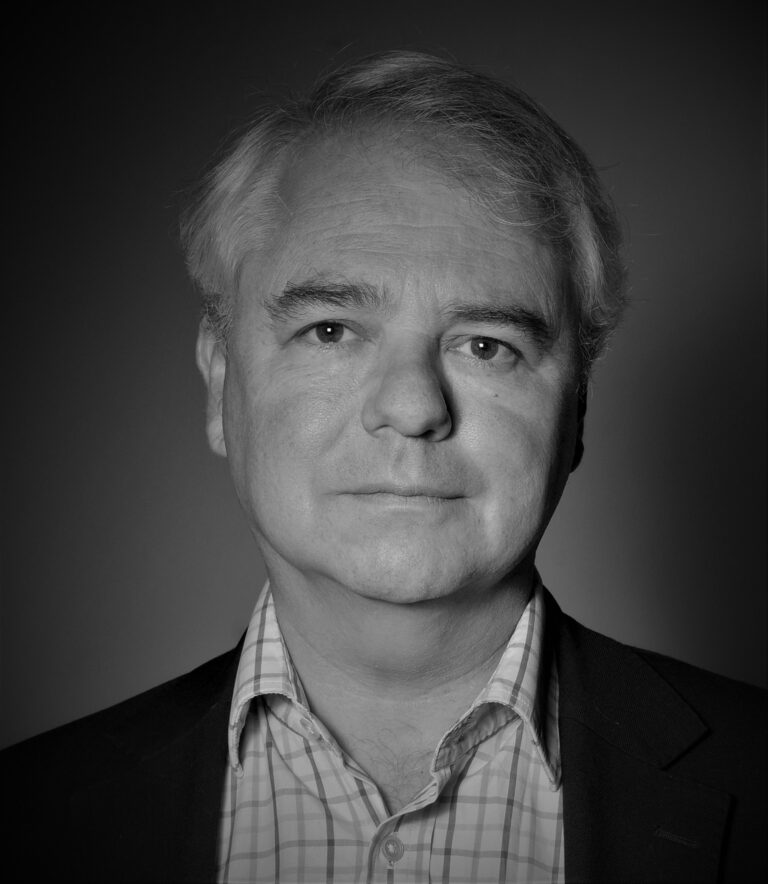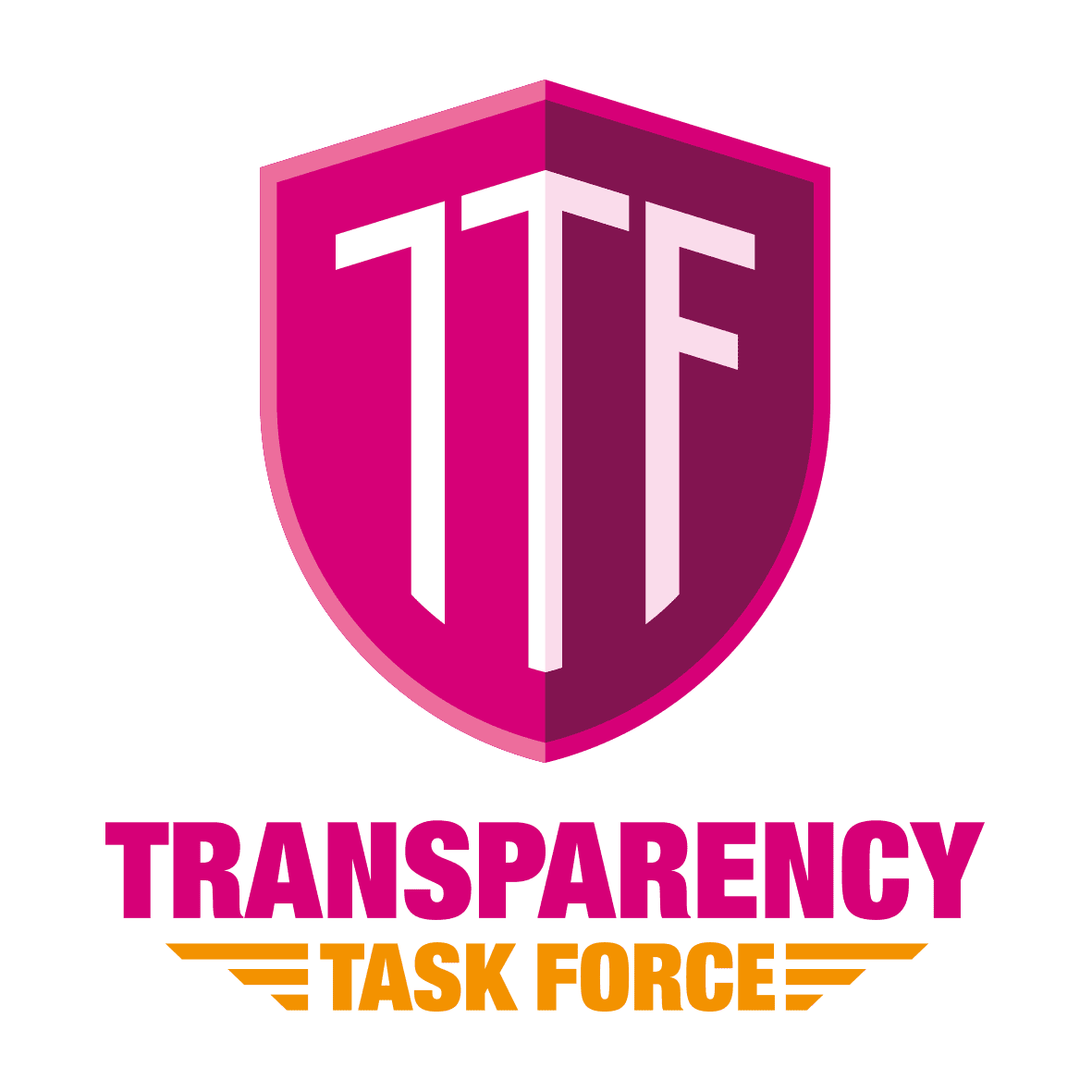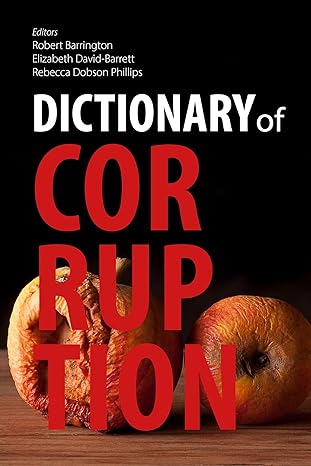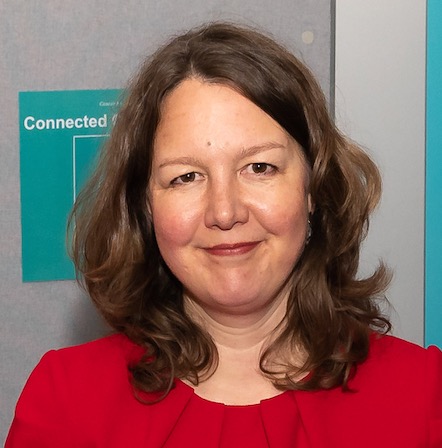This event has now taken place but you can watch the video recording of it through our Youtube Channel, get to it by clicking the button below
When
Tuesday, May 14 2024, from 6pm - 7:30pm BSTWhere
Online via Zoom.Format
There'll be a great line-up of speakers plus ample scope for discussion and debate.About the books...
Written by an expert team, the Dictionary of Corruption is a comprehensive resource for students, academics, practitioners and professionals. It establishes a common interpretation of the language and terminology in the field of corruption and anti-corruption studies. From bribery to Watergate, amakudari to zero tolerance and from anti-corruption agencies to whistleblowing, the Dictionary provides explanations of over 300 key terms, events and case studies.
Use code: CONF at the checkout to get a 30% discount
About the authors...
PROFESSOR ELIZABETH DAVID-BARRETT
Liz David-Barrett is Professor of Governance and Integrity at the University of Sussex and Director of the Centre for the Study of Corruption. Her research focuses on corruption risks at the interface of business and government, including in state capture, public procurement and bribery in international business – and on approaches to countering these risks. Recent co-edited books include the Dictionary of Corruption (2023, Agenda, with Robert Barrington, Rebecca Dobson Phillips and Georgia Garrod) and Understanding Corruption: How Corruption Works in Practice (2022, Agenda, with Robert Barrington, Sam Power and Dan Hough). Liz engages widely with anti-corruption practitioners globally, especially in sub-Saharan Africa, the Caribbean and Europe, and has advised the UK government and the G20 on their international anti-corruption work.
Liz’s expertise is often sought by the media, including the BBC Newsnight, the Financial Times and Le Monde. Before becoming an academic, Liz worked as a journalist in the Balkans for The Economist and Financial Times. In 2022-23, she was Head of the Global Programme on Measuring Corruption at the International Anti-Corruption Academy. She has a DPhil, MSc and MA from the University of Oxford and an MA from the University of London.
Her recent article ‘State Capture and Development: A Conceptual Framework’ (2023, Journal of International Relations and Development) sets out a framework for analysing modern patterns of state capture around the world. In addition, she investigates anti-corruption practices with a current focus on transnational networks that fight grand corruption, comparing law enforcement with investigative journalism.

PROFESSOR ROBERT BARRINGTON
Robert Barrington is Professor of Anti-Corruption Practice at the Centre for the Study of Corruption, University of Sussex. His research focuses on global corruption trends and corruption in developed economies, and he lectures on the Masters in Corruption & Governance. He was formerly the head of Transparency International (TI) in the UK, and Chair of TI’s International Council. At TI, he led the campaigns to secure the Bribery Act, a national Anti-Corruption Strategy for the UK and the introduction of Unexplained Wealth Orders. Previous roles include Director of Governance & Sustainable Investment at F&C Asset Management, overseeing Europe’s leading ESG funds, and CEO (Europe) of the Earthwatch Institute in Oxford.
Robert has been a long-term adviser to the UK government on subjects including the Bribery Act, export credits and the post-Brexit procurement regime, and has served on multiple boards and advisory committees ranging from The Environment Council to the World Economic Forum’s Global Futures Council on Good Governance. He is Deputy Chair on the Taskforce on Business Ethics and the Legal Profession convened by the Institute for Business Ethics. He writes extensively in the media and appears as an expert commentator on major news and current affairs programmes including BBC Radio 4 Today, BBC World Service, Sky News and LBC. Publications include a new ‘Dictionary of Corruption’, ‘Understanding Corruption’, ‘How to Bribe’ and ‘Adequate Procedures – Guidance to the UK Bribery Act’. He is currently researching a comprehensive overview of corruption in the UK due for publication in early 2026. He holds an undergraduate degree from Oxford University and a PhD from the European University Institute.




